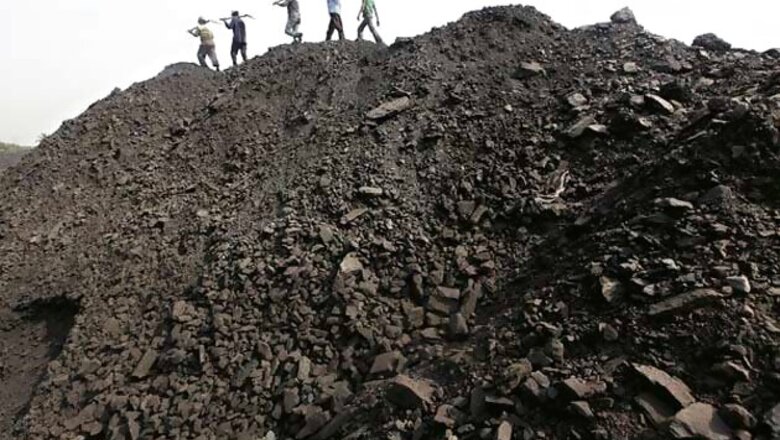
views
New Delhi: Respective states will get nearly Rs l lakh crore, including royalty, over the next 30 years from 16 coal blocks sold so far through the ongoing auction, a top government official said on Friday.
Besides, reverse auction for the power sector will result in benefits to the tune of Rs 37,050 crore to end-users by way of a cut in tariff, Coal Secretary Anil Swarup said. The government has put on block 19 mines in the first tranche of auction. Companies such as Jindal Power, Hindalco and Ultratech and others have bagged 16 of them so far.
"The e-auction amount is Rs 83,662 crore. But these blocks will also entail an income to the states by why of royalty which comes to Rs 12,801 crore," Swarup told. Madhya Pradesh will get Rs 39,900 crore, Chhattisgarh Rs 26,425 crore, Jharkhand Rs 14,498 crore, West Bengal Rs 13,210 crore, Maharashtra Rs 1,819 crore and Odisha Rs 607 crore, he said.
On benefits to power consumers, he said: "This is also a huge amount (Rs 37,050 crore). Because this is getting lost... most of the auctions have begun at zero...But what we are forgetting is that it comes from a ceiling price of a particular level and comes down to zero and this is the value that will get transferred to the tariffs."
In the reverse auction, government sets a ceiling price that is representative of production cost of Coal India. The private sector companies, which are considered more efficient, are expected to bid at lower price. For example, if the ceiling price is Rs 1,000 and the bidder bids Rs 800, then the benefit of Rs 200 is directly passed on to consumers. This would mean if the power is sold at Rs 3.50, out of which is Re 1 is cost coal and the same will become 80 paise because of pass through benefit of Rs 200. Thus the new price of power will be Rs 3.30 per unit.
In case the bids touch zero, meaning that the private producer is ready to pass on the benefit of coal extraction to power consumers, there would be a forward bidding. Under the forward bidding, the companies will be required to mention the price which they are willing to give to states.
















Comments
0 comment